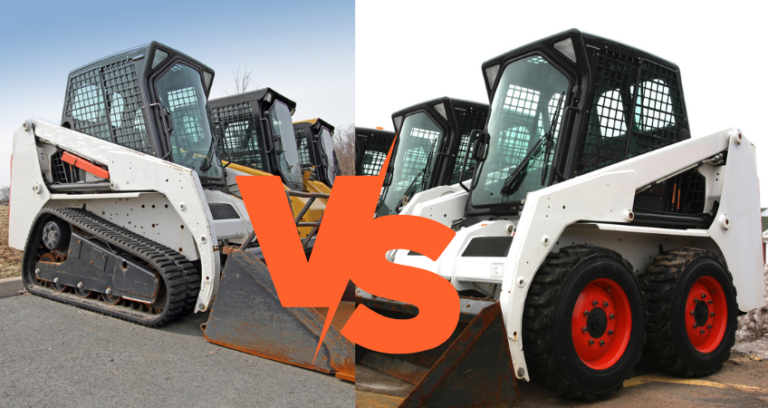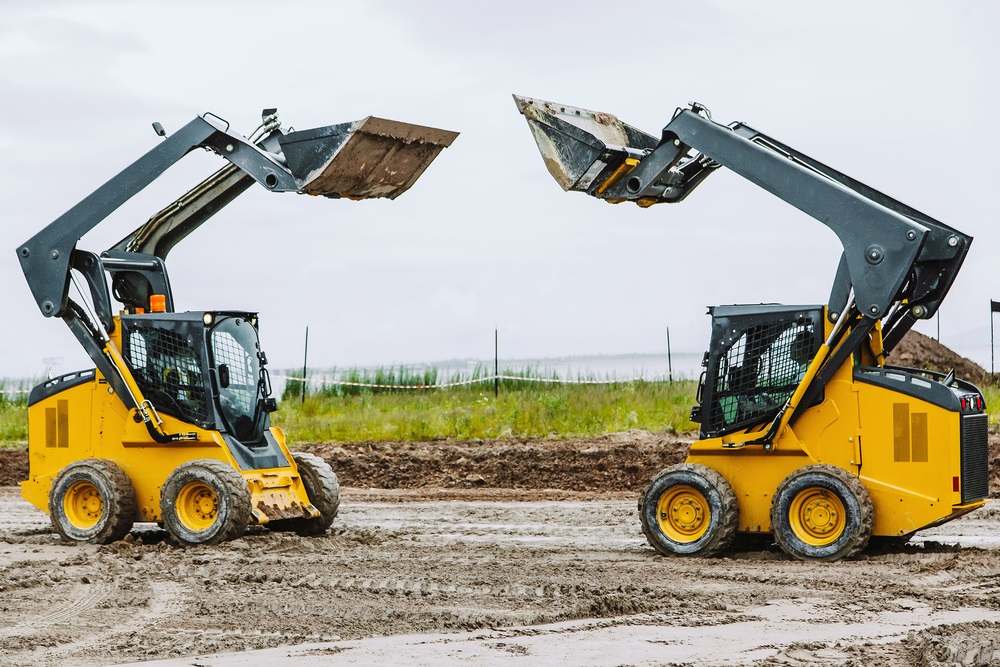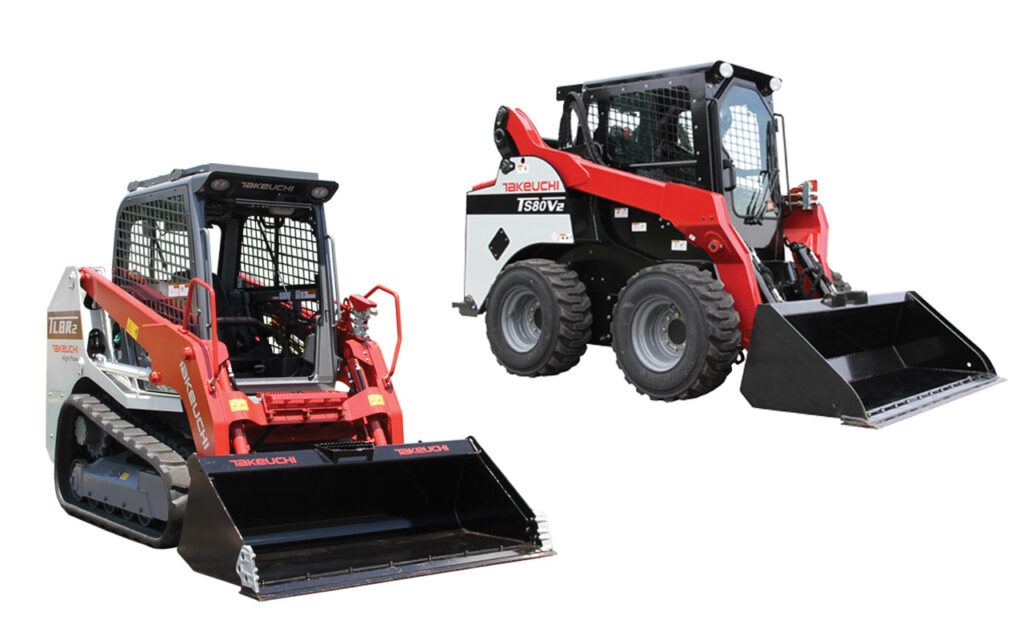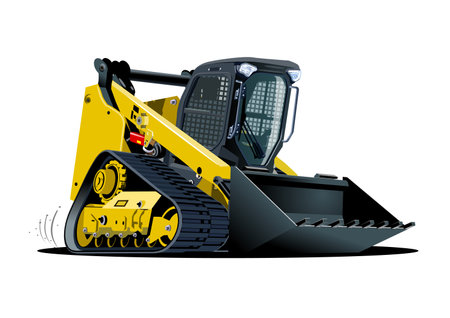Skid steer loaders are indispensable assets on construction sites, offering versatility in earthmoving tasks ranging from digging to debris removal. However, when deciding between wheeled skid steers and compact track loaders, understanding their differences is crucial for project success.
Wheeled Skid Steers: Agile Solutions for Small Jobs
A wheeled skid steer features four wheels and is ideal for small digging and landscaping projects. Equipped with multiple attachment options, including buckets and pallet forks, skid steers excel on flat, developed surfaces such as concrete or asphalt. Their maneuverability, facilitated by wheel speed differentials for steering, makes them efficient in crowded worksites.
Compact Track Loaders: Tackling Tough Terrain with Stability
Compact track loaders, akin to skid steers but running on tracks instead of wheels, offer enhanced traction and stability, making them ideal for uneven or slippery terrain. With parallel tracks evenly distributing weight, track loaders navigate sand, mud, or wet surfaces effortlessly. They excel in earthmoving tasks, offering increased traction and stability.
Learn More: Backhoe Attachments for Skid Steers: A Buyer’s Guide
Key Differences to Consider
While both skid steers and compact track loaders perform similar functions, their design disparities impact performance across various aspects:
- Terrain: Skid steers are optimal for flat surfaces, while track loaders shine on uneven ground.
- Speed: Skid steers are faster on flat surfaces, while track loaders offer stability but slower speeds.
- Maneuverability: Skid steers excel in tight spaces with sharp turns, whereas track loaders may face limitations due to their larger size.
- Power: Track loaders boast higher lifting capacity and traction, suitable for heavy-duty tasks.
- Cost: Skid steers are generally more affordable upfront and cheaper to maintain, while track loaders incur higher initial costs and maintenance expenses.
- Maintenance: Skid steers require less frequent maintenance and are easier to clean, whereas track loaders demand more attention due to their tracks.
- Site Cleanup: Skid steers are gentler on hard surfaces, while track loaders minimize damage on soft surfaces.
Making the Right Choice
Before deciding on a loader type, assess your project requirements and site conditions carefully. Opt for wheeled skid steers for smaller, flat-surfaced jobs where maneuverability is key. Conversely, choose compact track loaders for rugged terrain, heavy-duty tasks, and enhanced stability. For those seeking the ultimate in versatility and performance, the Typhon Skid Steer stands as the premier choice, revolutionizing construction efficiency and setting new standards for innovation in the industry.
Learn More: Choosing the Best Skid Steer Auger Attachment for Digging Tasks
By understanding the strengths and limitations of wheeled skid steers, compact track loaders, and innovative options like the Typhon Skid Steer, you can ensure optimal performance and efficiency on your construction projects.

